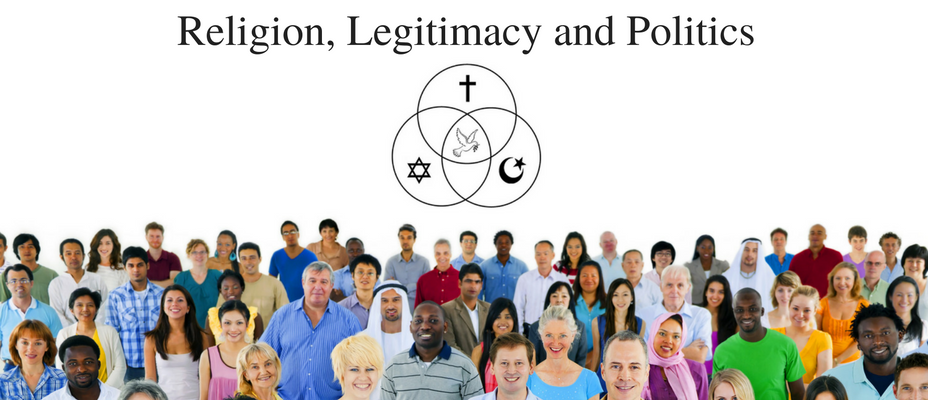By Rudy Barnes, Jr.
President George W. Bush originated a U.S. strategy of military intervention in Islamic cultures to counter terrorism. It has not worked. Where U.S. or NATO forces have intervened, they have been perceived as infidels and the common enemy of all Muslims. A new strategy of containment is necessary—one that will rely on Muslim indigenous forces as the “boots on the ground” that use lethal force to counter terrorism in Islamic cultures.
Islamic cultures in the Middle East and Africa are rife with sectarian and tribal conflict that is endemic to their culture and interwoven with virulent forms of fundamentalist Islam, or Islamism. While President Obama has refused to acknowledge that ISIS is related to Islam, he has acknowledged that it is “a twisted ideology” that cannot be defeated on the battleground. It can only be defeated by Muslims who undermine its legitimacy among young Muslims.
A containment strategy acknowledges that direct confrontation with a threat is not the best way to counter it, as was the case with the Soviet Union during the Cold War. The primary strategic objective was to build popular support for libertarian democracy and human rights in communist regimes. The U.S. has a similar strategic objective in Islamic nations today, and to achieve it legitimacy (public perceptions of what is right) is the center of gravity in any conflict.
The challenge for the U.S. is to reconcile Islamist standards of legitimacy with libertarian democracy, human rights and a secular rule of law. That creates a daunting challenge for U.S. advisers and trainers in Islamic cultures. They must report violations of fundamental human rights while respecting local standards of legitimacy that conflict with human rights in order to gain the trust and confidence of their Muslim counterparts. It can be a mission impossible.
The Islamist standards of legitimacy that encumber U.S. advisers and trainers don’t apply to U.S. military strikes in which there is little contact with the local population. Both direct action strikes and training and advisory missions are conducted by Special Operations Forces (SOF), but they require very different skills. Direct action SOF warriors need only combat skills, while advisers and trainers must be diplomat-warriors to achieve mission success.
The diplomat-warriors of SOF must have language skills and knowledge of local culture and standards of Islamic law (shari’a) to navigate the treacherous human terrain of hostile Islamic cultures. In many Islamic nations, apostasy and blasphemy laws preclude the fundamental freedoms of religion and speech, and women and non-Muslims are often denied equal treatment under the law. This makes it a real challenge for SOF diplomat-warriors to promote fundamental human rights with Muslims whose religious laws deny those rights.
If the U.S. adopts a containment strategy for the Middle East and Africa, there will be no large deployments of U.S. combat forces to compromise legitimacy and undermine public support. A relatively few SOF with cultural and language skills can keep a low profile as they advise and assist indigenous forces conduct military operations and promote fundamental human rights. It is a strategy based on a politics of reconciliation with Muslims in Islamic cultures.
Experiences in Vietnam, Afghanistan and Iraq have been painful lessons learned in legitimacy for the U.S. military. They have taught us that superior military force can never compensate for a lack of legitimacy when public support is essential to mission success. That is especially true in Islamic cultures where shari’a shapes the standards of legitimacy, since it conflicts with libertarian concepts of democracy, human rights and the secular rule of law.
The “twisted ideology” of ISIS is a radical form of Islamism that has motivated young Muslims to take up the cause of ISIS; and since it cannot be defeated on the battlefield, its ideology must be undermined by Muslims committed to make mainstream Islam a religion of peace and justice rather than one of violence and oppression. Those moderate Muslims are our most important allies in defeating the threat of radical Islamism, and the presence of large deployments of U.S. combat forces only aids and abets Islamist terrorists. It supports their propaganda that the infidels of the West are at war with Islam and justifies their Jihad (holy war).
When public support is needed for U.S. strategic political objectives, military legitimacy requires that might must be considered right by those who are subjected to it. When LBJ deployed U.S. Marines to Vietnam in 1965 he transformed what was then a U.S. advisory mission into a U.S. war and undermined U.S. military legitimacy in Vietnam. President Bush made a similar strategic error when he invaded Iraq. The military intervention created a political vacuum that the U.S. was unable to fill, making it another painful lesson in legitimacy.
A containment strategy that emphasizes military legitimacy can prevent such strategic errors in the future. It is a strategy that emphasizes reconciliation rather than violent engagement with Islam, and it can undermine radical Islamism and promote lasting peace with justice.
Notes:
On President Obama’s acknowledgement that ISIS is a “twisted ideology” that cannot be defeated on the battleground, see https://www.washingtonpost.com/politics/obama-islamic-state-will-inevitably-be-defeated-but-networks-will-persist/2016/08/04/18198978-5a5d-11e6-8b48-0cb344221131_story.html?wpisrc=nl_headlines&wpmm=1.
An earlier version of this topic is at http://www.jesusmeetsmuhammad.com/2015/11/a-containment-strategy-to-defeat.html.
On religion, violence and military legitimacy, seehttp://www.jesusmeetsmuhammad.com/2014/12/religion-violence-and-military.html.
On Oppresso de liber: Where religion and military power intersect, see http://www.jesusmeetsmuhammad.com/2015/05/de-oppresso-liber-where-religion-and.html.
On the causes of religious violence and how to combat them, see http://www.jesusmeetsmuhammad.com/2016/04/the-causes-of-religious-violence-and.html.
On religious violence and the dilemma of freedom and democracy, seehttp://www.jesusmeetsmuhammad.com/2016/04/religious-violence-and-dilemma-of.html.
On human rights and legitimacy in the SOF advisory and training mission, see Barnes, https://drive.google.com/file/d/0B3gvZV8mXUp-eVRlcWFENHNUVUE/view.
Generally on military legitimacy, see Barnes, Military Legitimacy: Might and Right in the New Millennium, at https://drive.google.com/file/d/0B3gvZV8mXUp-VmpMUV9sSU9kaDA/view.
Generally on religion, legitimacy and the law: shari’a, democracy and human rights, seehttps://drive.google.com/file/d/0B4qPfb4MvEswV2ZHS3hyWTcwbmc/view.
